St. Mariam Thresia, radiant in faith and devoted in service, Guide us with your love and inspire us to live with compassion. Help us to follow your example of humility and dedication to God, That we may serve others with kindness and grace. Intercede for us, dear saint, and grant us the strength to carry our crosses. Through your prayers, may we grow in holiness and draw closer to Christ. Amen.
ST. MARIAM THRESIA
ST. MARIAM THRESIA

St. Mariam Thresia was an Indian mystic, visionary, and the founder of the Congregation of the Holy Family. She lived a life of prayer, healing, and service, especially to families, the sick, and the poor.
St. Mariam Thresia Chiramel Mankidiyan was born on April 26, 1876, in Puthenchira, a small village in Kerala, India, into a deeply religious but modest Syro-Malabar Catholic family. Even from her earliest years, she showed signs of a profound spiritual life, experiencing mystical visions and intense devotion to prayer and the Holy Family.
Despite her desire for religious life, Mariam Thresia was not initially accepted into convents due to her extraordinary spiritual phenomena, which were often misunderstood. Instead, she began living a life of solitary consecration, marked by prayer, fasting, and service to the poor. She practiced frequent self-mortification and lived simply, often walking miles to visit the sick and help struggling families.
She became known for her spiritual gifts, including ecstasies, visions, and even bearing the stigmata. After a period of ecclesiastical scrutiny and guidance, particularly under her spiritual director Fr. Joseph Vithayathil, she was permitted to found a religious congregation.
On May 14, 1914, she established the Congregation of the Holy Family in Thrissur, Kerala. The congregation was dedicated to serving families in need, caring for the sick, educating children, and nurturing Christian values in homes. She took the name Mariam Thresia in honor of the Blessed Virgin and lived as the congregation’s first superior.
St. Mariam Thresia continued her charitable work, enduring physical suffering, spiritual trials, and the burdens of leadership until her death on June 8, 1926, at the age of 50. She died from injuries sustained while caring for a sick person.
Her sanctity and miracles led to her beatification by Pope John Paul II on April 9, 2000, and she was canonized by Pope Francis on October 13, 2019.
Video Not Found
The information on this website is compiled from various trusted sources. While we aim for accuracy, some details may be incomplete or contain discrepancies.
If you notice any errors or have additional information about this saint, please use the form on the left to share your suggestions. Your input helps us improve and maintain reliable content for everyone.
All submissions are reviewed carefully, and your personal details will remain confidential. Thank you for contributing to the accuracy and value of this resource.
Credits & Acknowledgments
- Anudina Visudhar (Malayalam) – Life of Saints for Everyday
by Msgr. Thomas Moothedan, M.A., D.D. - Saint Companions for Each Day
by A. J. M. Mausolfe & J. K. Mausolfe - US Catholic (Faith in Real Life) – Informational articles
- Wikipedia – General reference content and images
- Anastpaul.com – Saint images and reflections
- Pravachaka Sabdam (Malayalam) – Saint-related content and insights
We sincerely thank these authors and platforms for their valuable contributions. If we have unintentionally missed any attribution, please notify us, and we will make the correction promptly.
If you have any suggestion about ST. MARIAM THRESIA
Your suggestion will help improve the information about this saint. Your details will not be disclosed anywhere.
© 2026 Copyright @ www.allsaintstories.com




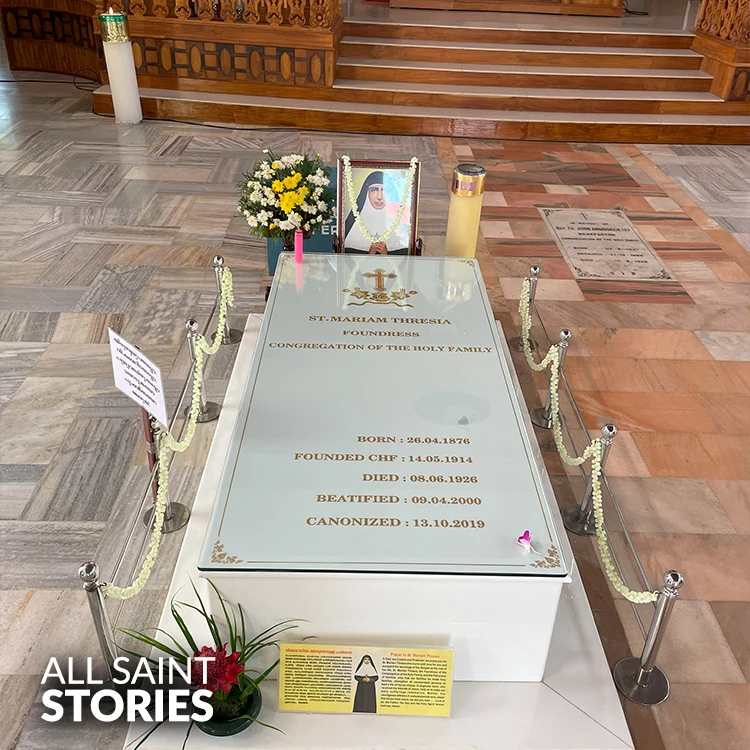
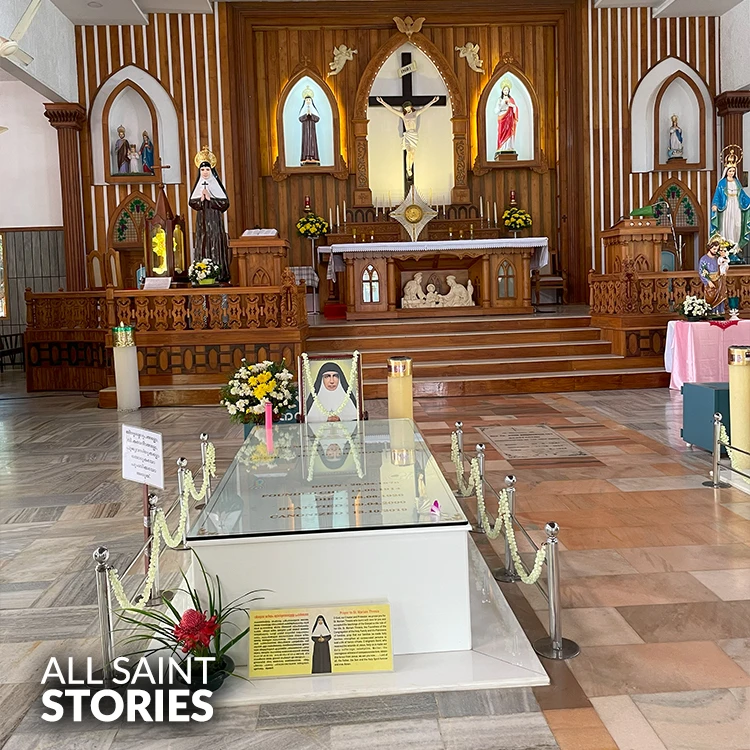
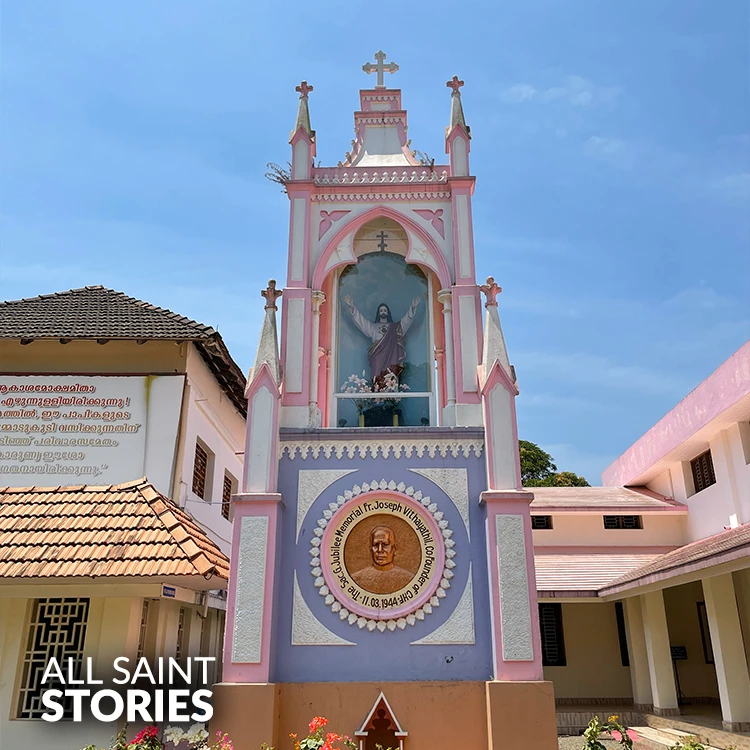
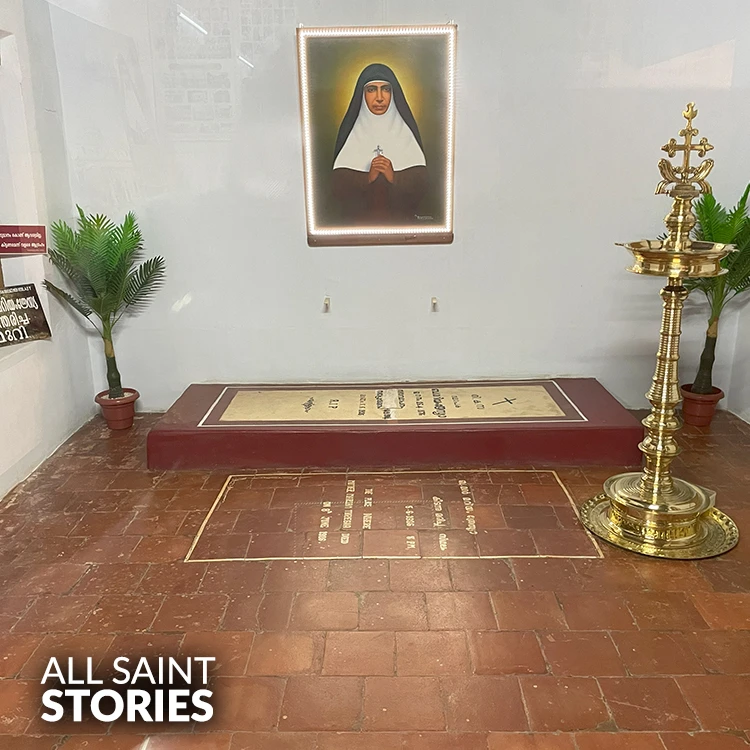

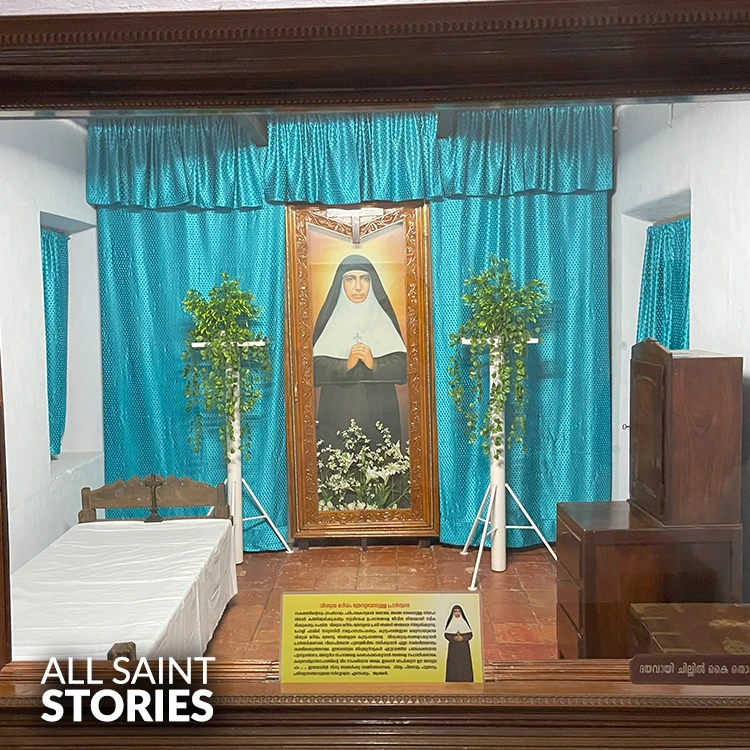

 English
English
 Italian
Italian
 French
French
 Spanish
Spanish
 Malayalam
Malayalam
 Russian
Russian
 Korean
Korean
 Sinhala
Sinhala
 Japanese
Japanese
 Arabic
Arabic
 Portuguese
Portuguese
 Bantu
Bantu
 Greek
Greek
 German
German
 Dutch
Dutch
 Filipino
Filipino